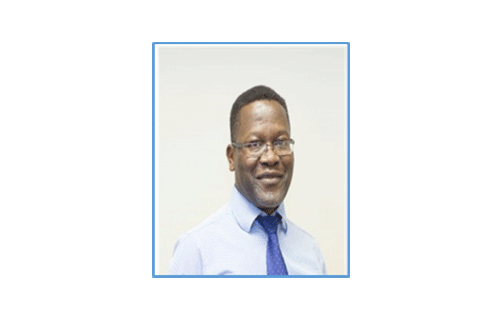Seth !Nowaseb
A recent article by our learned colleague proposing that only PhD holders should lecture at universities apparently caused a stir, and became a great discussion point in local academia and elsewhere.
There is nothing unusual about the thesis advanced by our colleague since these policies have been common practice in various institutions, particularly in the West. It is also a good thing to encourage lecturers such as the author of this piece and others to hasten to acquire such qualifications.
What is little confusing, however, is this. Many universities, including those referenced in the article by our learned professor, have had many academics with PhDs for the last 10, 20, 30 or even 40 years. However, if one looks at the contribution made by African academics with PhDs in transforming their societies, there is a mismatch. One assumes that those academics who already obtained PhDs are among the smartest and ablest of minds in our societies, and particularly, in the more established universities in Africa – in Ghana, Kenya, Nigeria, Uganda, Zambia and Zimbabwe, to mention but a few.
The question is: to what extend have PhD holders at these universities contributed in the long-term transformation of their societies in the last 20-50 years? How many of the PhD holders invented products that transformed their societies? How many PhD holders made discoveries in those countries to bring tangible long-term benefits to their people? How many Nobel Prizes in physic, chemistry, medicine or economics were awarded to academics from African universities who were PhD holders?
Sadly, when it comes to the impact, the contribution by PhD holders from the continent – with the exception of South Africa – has been woefully inadequate. But why has this been the case? One can only conclude that while completing a PhD is a wonderful thing, this qualification in itself is not always a measure of successful long-term and transformational contributions to the society and continent of Africa.
Besides, history has shown that many of the world’s significant transformative contributors were not PhD holders. When Albert Einstein developed his theory of relativity, he did not have a PhD. Francis Crick of Watson and Crick DNA fame, did not complete his PhD until after the famous discovery of the Double Helix. Leonardo da Vinci, Henry Ford, Picasso, Bill Gates, Steve Jobs, Richard Branson, Abraham Lincoln and Nelson Mandela were among the most illustrious visionary and transformative leaders who completely transformed their societies and the world in their fields.
And yet, none of these titans of world history graduated with a PhD from university. In fact, some of them barely had formal education. Several Nobel Prizes in physics and chemistry were awarded to people without a PhD. It can be seen from the above explanation that while a PhD may be required to teach at many universities, gaining a PhD in itself has not led to any significant transformational impact on society by the holders. What is, however, in no doubt is that diligence, life-long learning, natural curiosity coupled with an inquisitive mind rather than acquiring high academic qualifications, is what made those characters so impactful that they often outperformed those with far higher qualifications than themselves.
Thus, rather than encouraging university lecturers to see obtaining a PhD as an end-goal, it will be wise for those working in resource-poor countries to concentrate on helping their academics, whether with a PhD or not, to see their role as that of developing young students to acquire the mindset of life-long learning and inquiry, to device ways to set up businesses that solve pertinent challenges such as how to clean contaminated water, deal with locusts which destroy crops, industrial manufacturing of solar power technology, address value- addition challenges in mining products, and the enlargement of the industrial manufacturing sector. The current PhDs could work at finding and developing an effective funding model that connects the Ministry of Finance and the Namibia Students Financial Assistance Fund (NSFAF) to solve finances’ disbursements to Namibian students, based on what’s being used elsewhere.
Solving the latter question will reduce high attrition rates amongst students who spent months trying to find money to meet simple daily needs instead of studying. If our PhD holders can become conduits for transformative learning and development, they will become heroes who are relevant to the needs of their societies, and people who solve everyday problems.
That, in turn, will transform the financial, economic and political discourses of their countries. Can you imagine what will happen if the current as well as aspiring PhD holders in Ghana, Kenya, Uganda, Zimbabwe, Zambia and/or other countries could use their high intellect to address and solve the challenges of their societies? This will result in economic growth, many more jobs, the industrialisation of various sectors, and unimaginable improvements in the quality of life for our societies in Africa.
Such a transformation will make Africa a better contributor and an equal partner in global affairs. Socrates in Plato’s Republic argues that successful government depends on those with high intelligence running the state, meaning the smartest – PhD – should rule. But history has shown that most successful leaders and innovators with a transformative impact were not always those with the highest academic calibre. So, gaining a PhD for the academics is something good that should be encouraged, but those who already have PhDs should show their nations that they are indeed value for money, and that people whose intellect can bring long-term transformation for the betterment of their societies, because that is not clear at the moment.
* Seth !Nowaseb is an academic. He is particularly interested in exploring methods for teaching people to learn, with the view of helping students start their own business enterprises after graduation. He can be contacted at: spnowaseb@yahoo.com


